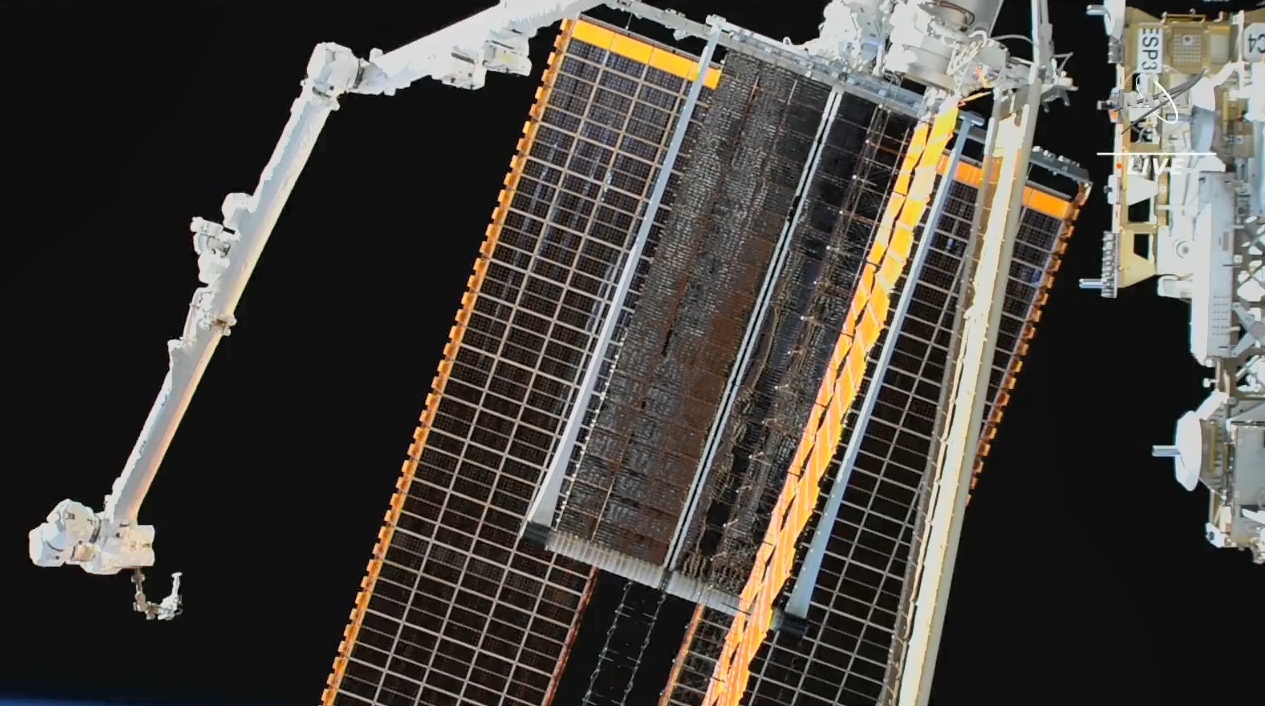WASHINGTON — After completing an upgrade to the International Space Station’s power system in June, NASA is moving ahead with plans to add two more solar arrays to the station.
Boeing and Redwire announced June 28 that they signed a contract for a fourth pair of ISS Roll-Out Solar Arrays, or IROSA, for the station. Redwire developed the array technology, known as ROSA, which uses solar arrays that are launched in a rolled-up form factor and then extend once in space.
The companies had previously partnered on six IROSA arrays installed on the station starting in 2021. The third, and originally final, pair of IROSA arrays arrived at the station in early June on a SpaceX cargo Dragon spacecraft. NASA astronauts Steve Bowen and Woody Hoburg installed them on two spacewalks June 9 and 15.
The new arrays are designed to augment the station’s original solar arrays, which have degraded over the years. The IROSA are installed on top of arrays, partially shadowing them but providing a net increase in power. Each array generates more than 20 kilowatts of power.
“The ability to augment that power is really important for us,” said Dina Contella, NASA ISS operations integration manager, during a June 1 briefing to preview those spacewalks. “The ability to bring our power up to normal levels and even a little higher for future research is really critical for the space station.”
At that briefing, she said there was interest in installing a fourth IROSA pair. “We do have plans in place to try and build a fourth set of arrays, funding notwithstanding.”
In a June 30 statement, NASA spokesperson Josh Finch said NASA and Boeing, the ISS prime contractor, “have a plan in place” for the fourth IROSA pair. Those arrays would be delivered to the station in late 2025 or early 2026. He said the contract modification for the new arrays was valued at a little more than $35 million.
Redwire did not disclose the value of its contract with Boeing to provide the arrays. It saw the award as a validation of its overall ROSA technology, which was also used on NASA’s Double Asteroid Redirection Test planetary defense spacecraft and will be incorporated on the Power and Propulsion Element for the lunar Gateway.
“We are proud of the successful deployment of six IROSAs on the ISS to date, making it the gold standard for large-scale power generation with proven flight heritage,” said Peter Cannito, chief executive of Redwire, in a statement.
“The six IROSAs installed on the ISS are innovative examples to support further utilization with technologies and systems that were not envisioned when the ISS was designed and built,” said John Mulholland, Boeing vice president and program manager for the ISS, in the statement.
